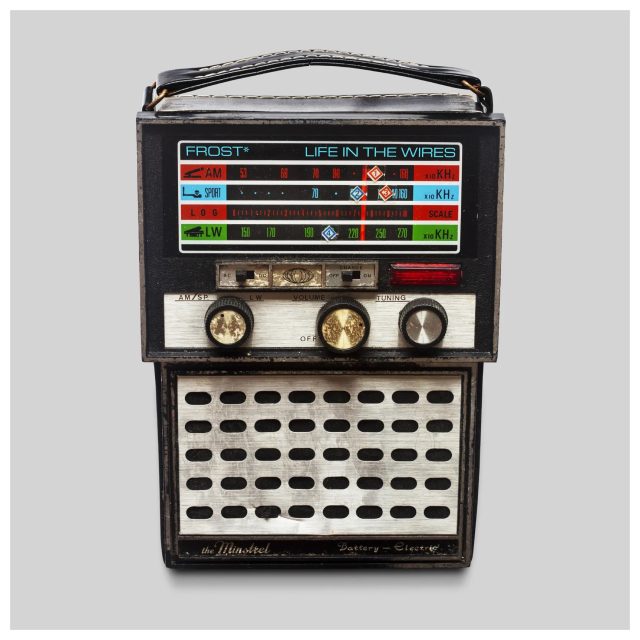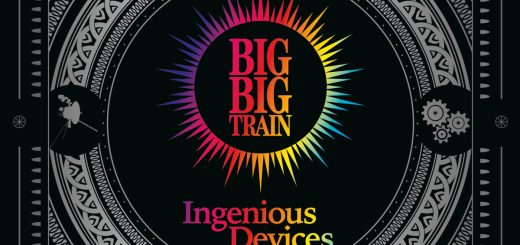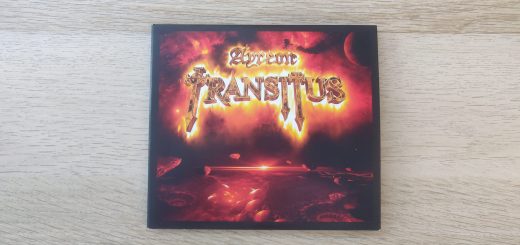Frost*: ‘Life in the Wires’ Review

The album artwork for Life in the Wires
A combination of scarcity and quality means that each new Frost* album feels like an event in the progressive scene, even for listeners like myself who are familiar with the band’s work but are not necessarily part of the die-hard cult following they’ve developed. This sense of occasion is amplified by the bumper runtime of new double album Life in the Wires, which weighs in at 85 minutes and is considerably longer than any of their previous works. The question is, does the album warrant this extra time investment or is there fat that could have been cut away to make a stronger listening experience?
If Life in the Wires were just an album of ordinary songs then that would be easier to answer – but this is a concept album that has been expertly crafted to flow between different musical moments and story beats so the removal of any particular track would throw the whole journey off course. Thankfully none of the material feels superfluous and there’s no mid-to-late album drag that often characterises double albums.
An early highlight comes in the form of This House of Winter, a plaintive piano-led number with soundscapes reminiscent of Seasons End-era Marillion. On the opposite end of the spectrum, the boisterous drum fills and chugging guitars of Propergander will please fans of the band’s livelier material as things threaten to spill over into prog metal territory. One of the album’s most striking moments happens in the transition to the first chorus of Evaporator as the song suddenly changes tempo and strips back to just vocals and piano with a wash of synths in the background before bursting back into life as the chorus ends.
The melancholic soundscapes and callbacks to previous material present throughout the record work well to conjure one of the album’s key themes, nostalgia. The album’s narrative sees the main character finding solace and inspiration in an old radio broadcast which will be a relatable experience for many listeners even without the added backdrop of an oppressive society overrun by AI. The story isn’t conveyed as explicitly as something like Ayreon‘s dialogue-heavy rock operas, leaving room for interpretation as to the exact events that occur.
Lead vocal duties have varied across the Frost* discography but here Jem Godfrey takes on the bulk of the singing. Never fear though, there are still plenty of the layered vocal harmonies the band are known for and the versatility of Jem’s voice more than compensates for the lack of vocal contributions from John Mitchell. When it comes to the instruments it doesn’t feel right to dissect each individual performance as so much of the playing is designed to suit the songs rather than embracing the virtuoso showboating typical of prog.
There are still plenty of solos but they are deployed tastefully. Take the synth lead in The Solid State Orchestra for instance, which is exhilarating and lasts for just the right amount of time to get the blood pumping without overstaying its welcome and derailing the song. As you would expect the album’s epic Life in the Wires (Part 2) is chock full of solos, including a delightfully retro organ section, but it feels earned since the piece comes at the album’s climax before the uplifting Starting Fires brings matters to a close.
Whether Life in the Wires will surpass classic debut Milliontown for long-time fans remains to be seen but those that favour the sound of that album will find a lot to like here. This is an album that needs to be experienced as a whole and I can tell it will be even more rewarding over further repeat listens as the references to other songs become more apparent. Though they don’t currently have any dates scheduled it feels inevitable that when Frost* next go, on the road they will be presenting this fine work in its entirety and I hope to be there when they do.









